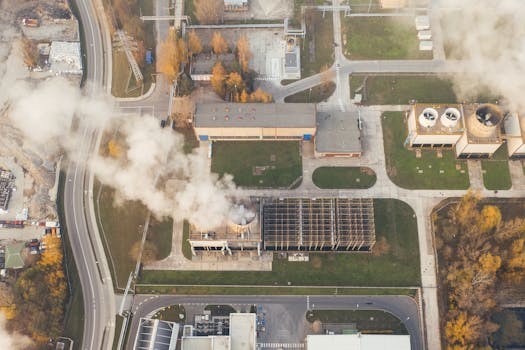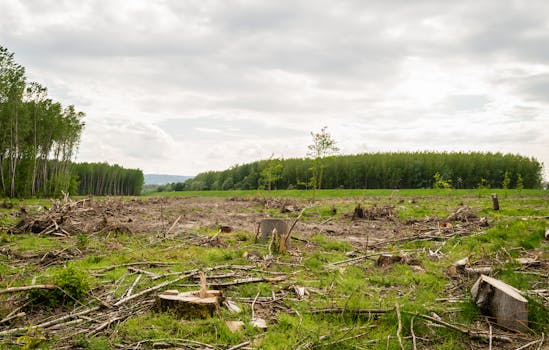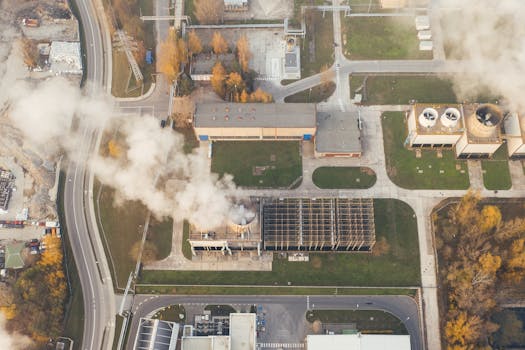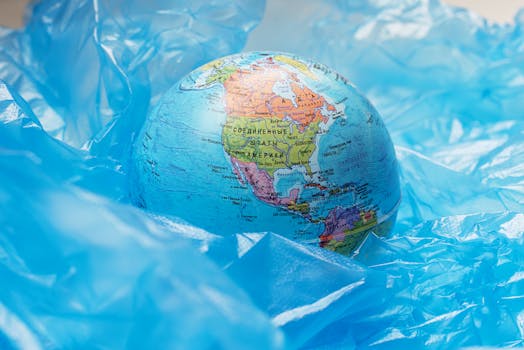
Climate Change and Global Ecosystems
Climate change is one of the most pressing issues of our time, with far-reaching consequences for the health of our planet. Climate change is having a profound impact on global ecosystems, from rising temperatures to altered species distributions. In this article, we will explore the effects of climate change on ecosystems and what we can do to mitigate them.
The Science of Climate Change

Climate change refers to the long-term warming of the planet due to an increase in average global temperatures. This warming is primarily caused by the increasing levels of greenhouse gases in the Earth’s atmosphere, such as carbon dioxide and methane. These gases trap heat from the sun, leading to a rise in global temperatures.
Causes of Climate Change
The main causes of climate change are:
- Burning of fossil fuels, such as coal, oil, and gas, which releases carbon dioxide and other greenhouse gases into the atmosphere.
- Deforestation and land-use changes, such as the clearing of forests for agriculture and urbanization.
- Agriculture, particularly the production of meat, which leads to the release of methane and nitrous oxide.
Impact of Climate Change on Ecosystems

Climate change is having a significant impact on ecosystems around the world. Some of the effects include:
- Rising sea levels, which are causing coastal erosion and flooding, and threatening the habitats of plants and animals that live in these areas.
- Changes in precipitation patterns, which are altering the distribution of water around the world and affecting the growth and survival of plants and animals.
- Increased frequency and severity of extreme weather events, such as heatwaves, droughts, and storms, which can have devastating effects on ecosystems.
Effects on Biodiversity
Climate change is also having a significant impact on biodiversity, with many species facing extinction due to changes in their habitats and ecosystems. Some of the effects include:
- Polar bears, which are struggling to adapt to the melting of sea ice in the Arctic.
- Coral reefs, which are dying due to rising sea temperatures and ocean acidification.
- Amphibians, which are facing extinction due to changes in their habitats and the spread of disease.
What Can We Do to Mitigate the Effects of Climate Change?

There are many things that we can do to mitigate the effects of climate change, from reducing our carbon footprint to protecting and restoring natural ecosystems. Some of the actions we can take include:
- Reducing our use of fossil fuels and transitioning to renewable energy sources, such as solar and wind power.
- Protecting and restoring natural ecosystems, such as forests, wetlands, and oceans, which can help to absorb carbon dioxide and mitigate the effects of climate change.
- Supporting sustainable agriculture and reducing food waste, which can help to reduce the environmental impact of agriculture.
Conclusion

In conclusion, climate change is having a significant impact on global ecosystems, from rising temperatures to altered species distributions. However, by taking action to reduce our carbon footprint and protect and restore natural ecosystems, we can help to mitigate the effects of climate change and ensure a healthy and sustainable future for our planet.



